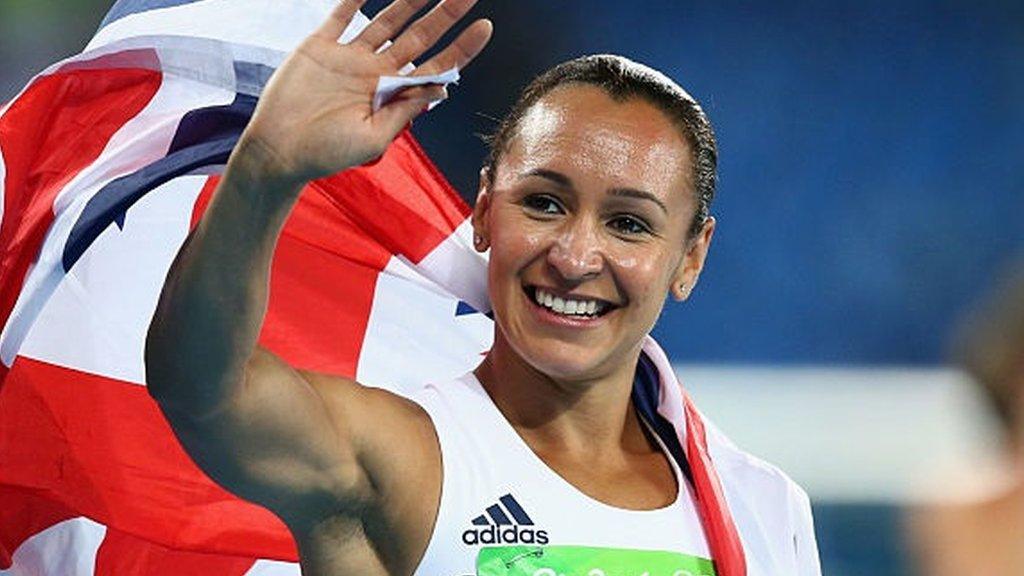To boo or not to boo, that's the Justin Gatlin question
- Published
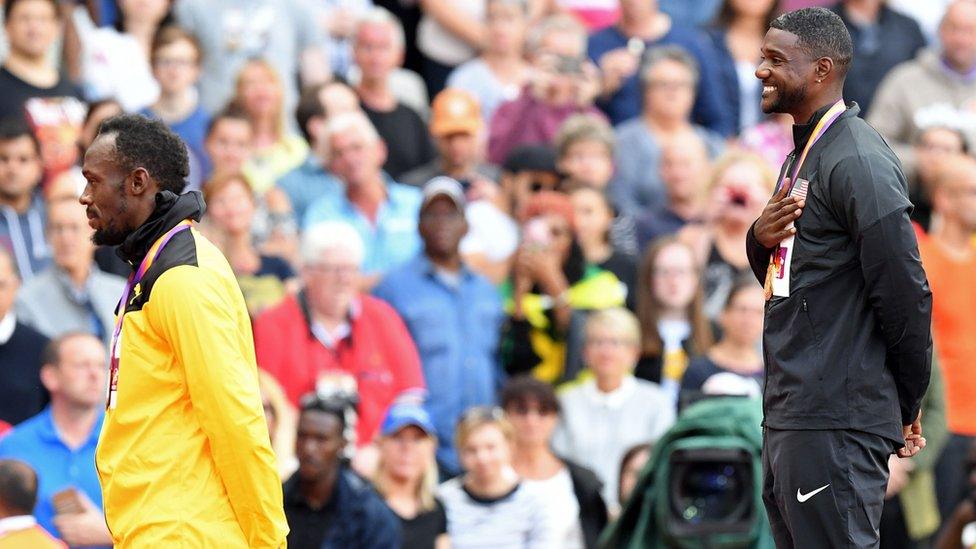
All smiles for gold medallist Justin Gatlin, despite the mixed reaction from the crowd
Anyone who is a fan of athletics will not have missed the action at the London 2017 World Championships over the weekend.
All eyes were on Jamaica's Usain Bolt to win his last 100m individual gold medal before hanging up his spikes, but on Saturday he was beaten into third place by America's Justin Gatlin and Christian Coleman.
Gatlin, who has served two doping bans, was subjected to boos and jeers both after winning the race and as he was presented with his gold medal on Sunday night.
But was this justified? The athlete feels he's done his time and should be welcomed back to athletics.
Gatlin booed during medal ceremony (UK users only)
(Video: UK users only)
BBC Sports commentators went head-to-head on whether booing Gatlin was the right thing to do.
Michael Johnson, who won nine individual gold medals at Olympic Games and World Championships in the 200m and 400m, said Gatlin had been cast as a villain by the media, which, he says, has ignored other competitors who have also served bans.
Johnson reiterated his opinions via Twitter, external on Monday morning, saying moving medal ceremonies to avoid booing shows athletics has problems.
The former coach of Jessica Ennis-Hill, Toni Minichiello, told the BBC: "The crowd expressed their opinion appropriately. It wasn't the whole of the crowd. That's sport, that's drama."
You might also like:
So which side were you on? Some say cheats should be banned for life, others say they should be given a chance once they've served their ban.
Double Olympic decathlon champion, Daley Thompson, prompted reaction before the race.
Allow X content?
This article contains content provided by X. We ask for your permission before anything is loaded, as they may be using cookies and other technologies. You may want to read X’s cookie policy, external and privacy policy, external before accepting. To view this content choose ‘accept and continue’.
However, many people felt the crowd was being disrespectful.
Allow X content?
This article contains content provided by X. We ask for your permission before anything is loaded, as they may be using cookies and other technologies. You may want to read X’s cookie policy, external and privacy policy, external before accepting. To view this content choose ‘accept and continue’.
American hurdler, Queen Harrison, was not impressed with the boos:
Allow X content?
This article contains content provided by X. We ask for your permission before anything is loaded, as they may be using cookies and other technologies. You may want to read X’s cookie policy, external and privacy policy, external before accepting. To view this content choose ‘accept and continue’.
Others have been reminding us that Gatlin is not the only person to have been given a doping ban.
Allow X content?
This article contains content provided by X. We ask for your permission before anything is loaded, as they may be using cookies and other technologies. You may want to read X’s cookie policy, external and privacy policy, external before accepting. To view this content choose ‘accept and continue’.
On Facebook, external, the comments were plentiful and varied with some acknowledging Gatlin has "done his time" while others clearly preferring a total ban:
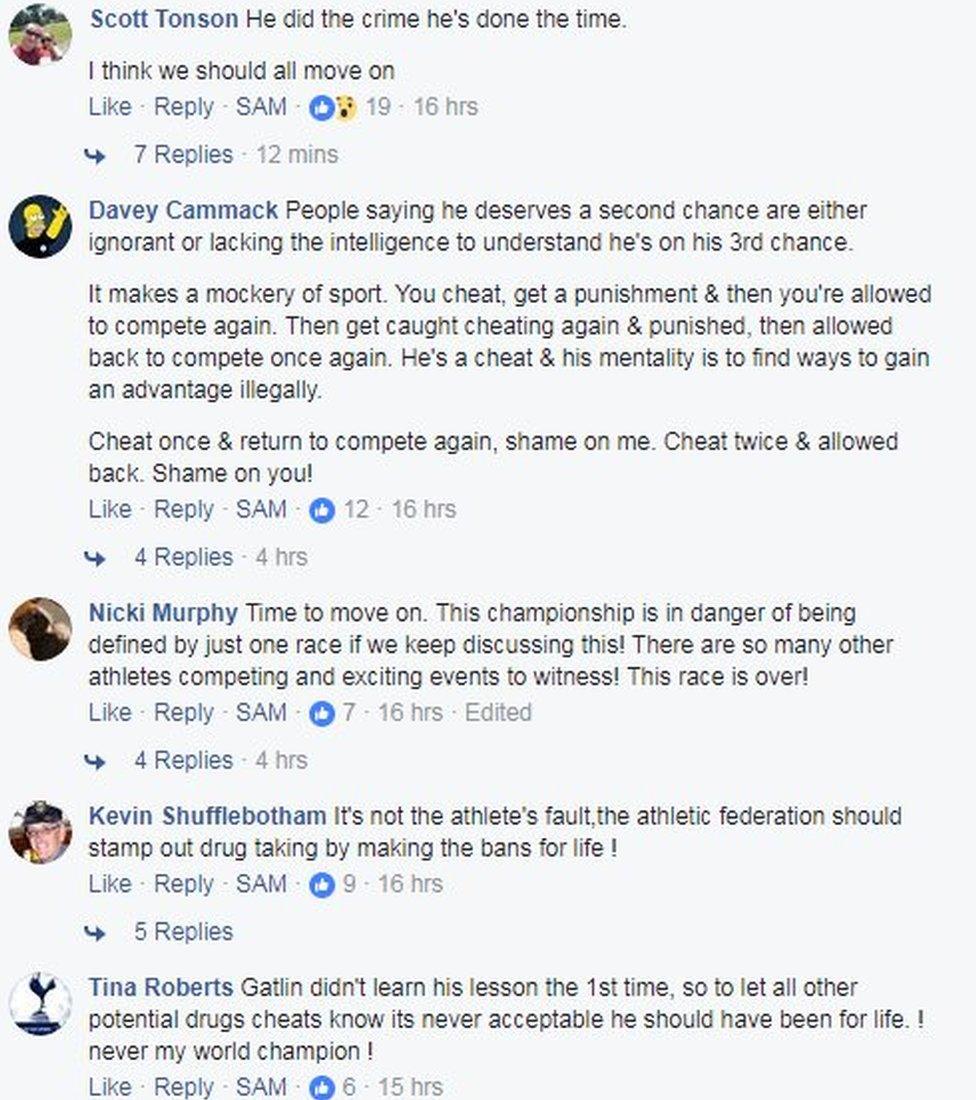
There were very divided opinions on Facebook
One Twitter user felt, external the boos were as much a statement of protest at the weak IAAF, external as much as it was for Justin Gatlin.
While another had some sympathy, external for Gatlin: "Imagine working so hard to win, just to be booed. There is a lot of complicity in the drugs thing. Gatlin isn't the devil."
A third added, external that no one will forget Gatlin's past: "He won't do it again.. at 35 he's at the end of his career. He will always have a question mark after his results."
Whatever happens during the rest of these championships, there is no doubt that doping will always be in the back of some people's minds, whether it's historical or not.
Written by BBC UGC and Social News team.
- Attribution
- Published6 August 2017
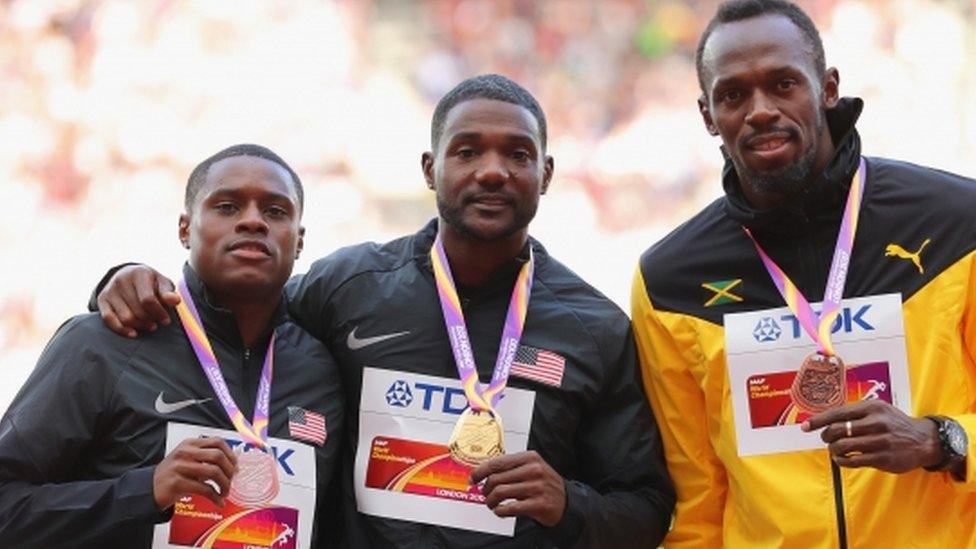
- Attribution
- Published30 June 2017
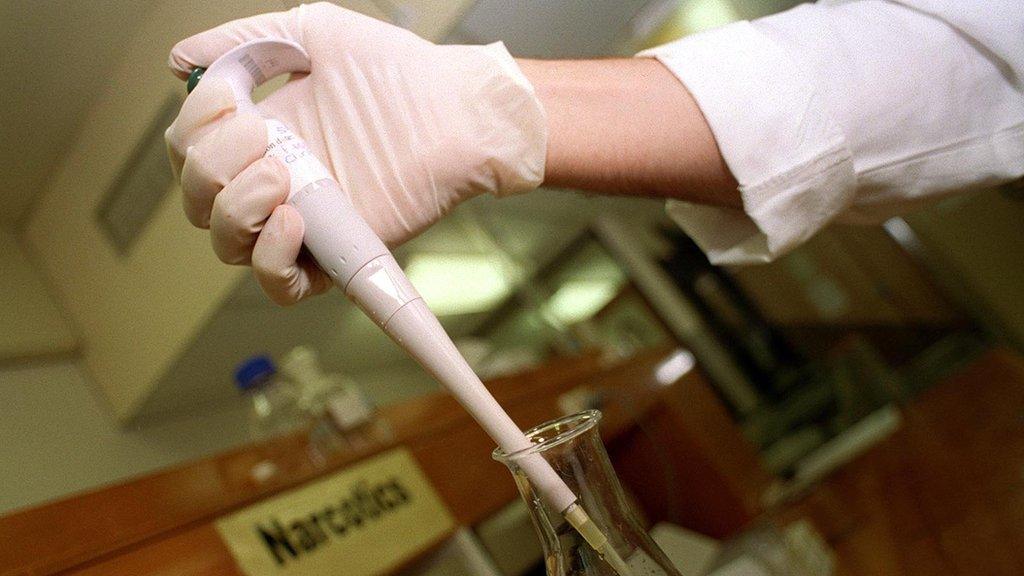
- Attribution
- Published30 November 2016
